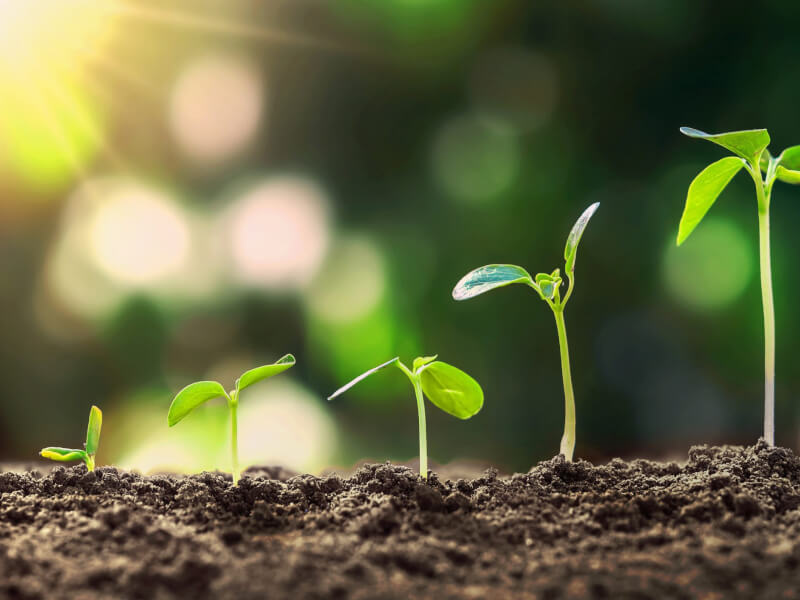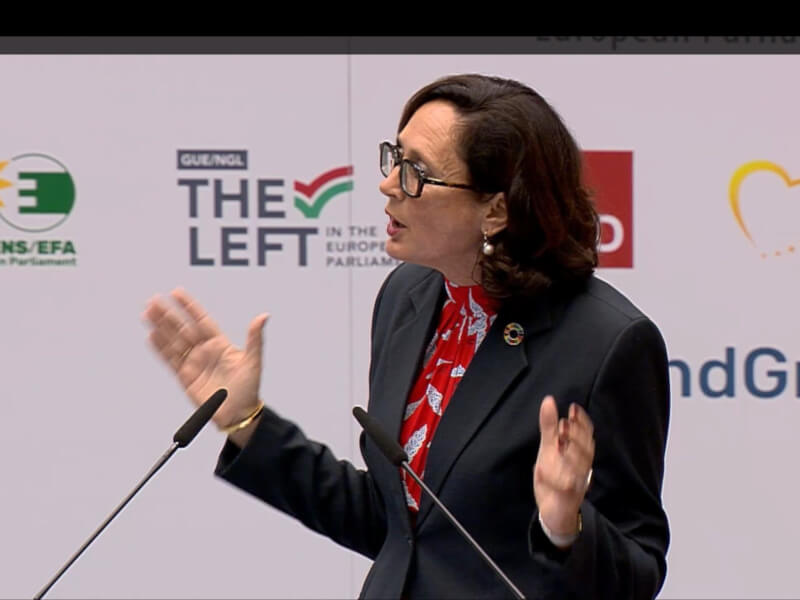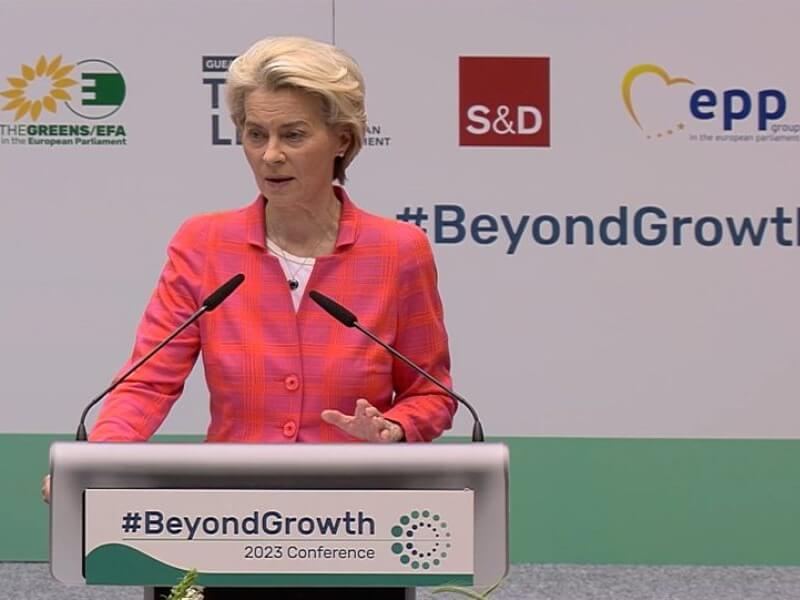22 December 2022 – Our planet is on fire – literally and metaphorically. Natural disasters range from climate change, biodiversity loss, species and plant extinction to the degradation of natural ecosystems. Economic development, meant to lift millions if not billions of people out of poverty, leads to an increase in anthropogenic pressure. According to the Global Footprint Network, humans use as many ecological resources as if we lived on 1.75 Earths. Consequently, measures need to be taken to reduce the overall footprint on our planet.
A lot has been written over the last years, and sometimes even decades, on topics such as Corporate Social Responsibility (CSR), Corporate Governance, Sustainable Development, Triple Bottom Line, Sustainable Finance, ESG (Environmental, Social, and Governance), Impact Investing, the Sustainable Development Goals (SDGs), or the European Green Deal.
What all of these terms and measures have in common is the notion that economic activity and global development need to be more holistic in nature in order to protect natural resources and pay attention to social (including health) considerations – above and beyond a single focus on economic prosperity. Some of these terms focus on macroeconomic, others on microeconomic (including finance and accounting) considerations. One could also say that the perspective changes from the big picture (e.g., on a national or supranational level) to a more microscopic consideration (e.g., on an organizational level) in order to incentivize transactions – and action – that keep in mind people and planet, in addition to profit.
Let’s take a look at Corporate Social Responsibility (the term Corporate Governance is often used synonymously): As noted in HEC’s Executive Factsheet, the economists Howard R. Bowen and William C. Frederick looked into the social responsibilities of companies and their leadership in the 50s and 60s, respectively. However, it took almost 50 years for CSR to become mainstream: According to KPMG, it took a while for CSR reporting rates to increase: at the turn of the century a third of the world’s 250 largest companies by revenue published a CSR report; this number rose to approx. 90% around 2010.
The Brundtland Commission’s report to the UN Our Common Future (WCED – World Commission on Environment and Development 1987), popularized the term sustainable development; it was preceded by a range of publications on topics such as development, economic growth (including its limits). The Brundtland Report expressed the belief that social equity, economic growth and environmental maintenance are simultaneously possible, thus highlighting the three fundamental components of sustainable development: the environment, the economy and society, which later became known as the triple bottom line. Moreover, the report emphasized the rights of future generations.
Along similar lines, different historic events created the basis for what is now known as impact investing. In 2006, the United Nations Principles for Responsible Investment (UN PRI) was released with 63 signatories and $6.5 trillion in assets. Impact investors focus on advancing environmental or social considerations alongside the optimization of investment returns.
The 2030 Agenda for Sustainable Development with its 17 Sustainable Development Goals (SDGs) was adopted at the UN Sustainable Development Summit in New York in September 2015. Various UN declarations and summits paved the way for developed and developing countries to follow universally recognized principles tackling poverty while improving education as well as human and planetary health, reducing inequality, and spurring economic growth.
So far so good. All of these measures – embedded into regulatory frameworks – are important milestones toward a more equitable, socially and environmentally just transformation of our planet.
However, we simply don’t have enough time!
In 2015, the International Geosphere-Biosphere Programme and Stockholm Resilience Centre published a dashboard of 24 indicators which depict the dramatic acceleration in human enterprise and the impacts on the Earth system over the last two centuries. Changes in human production and consumption, indicated by gross domestic product, direct foreign investment, energy consumption and telecommunications, are reflected in changes in the Earth’s natural systems: climate (greenhouse gas levels, global temperature), ocean acidification, terrestrial biosphere degradation and fish capture.
Having been part of the sustainability movement myself for over 15 years, I can safely say that there is certainly enough talk and also some action – but it may not be the right kind of action.
“It cannot be emphasized enough how everything is interconnected. […] To seek only a technical remedy to each environmental problem which comes up is to separate what is in reality interconnected and to mask the true and deepest problems of the global system.”
Pope Francis, Encyclical Letter Laudato Si’ (2015), chapter 4, paragraph 138/chapter 3, paragraph 111
There is a conundrum when leaving things up to fate and in the hands of technocrats, politicians or economists: the focus is likely to be short-term, as incentives are often equally short-term oriented. Stock markets put pressure on listed companies to boost quarterly profits, often at the cost of long-term research and development expenditures. Venture capital investors demand entrepreneurs to grow exponentially, which requires business models that put profits before impact-oriented considerations. So-called patient capital is not commonplace. Politicians with an average tenure of four years may be punished for long-term oriented decisions (e.g., to address global problems such as climate change) if they have negative short-term effects (such as higher energy prices). Balancing short- and long-term interests may be tough decisions to make, especially if they want to be reelected. Most economists naturally focus on the maximization of economic growth rather than the wellbeing of our societies and individuals at large (mostly, because adequate systems have not been set up yet to measure indicators other than GDP).
The other side of the coin are both consumers and producers who are less conscious than they may claim to be. Consumers may not always have all the information they require to make ethical purchasing decisions at their fingertips. But they can still choose to inform themselves to buy more sustainable goods – or simply consume less. Not least due to the current sustainability trend, greenwashing is omnipresent. Producers apply misguided marketing or PR campaigns or change the packaging of an existing product while continuing to use unsustainable ingredients. It is a way for companies to appear like they care while also increasing their profit margins.
From my perspective, we are facing both a systemic and a spiritual crisis that is deeply rooted.
Our western mindsets in particular tend to look for quick fixes when addressing global problems that have been in the making for decades if not centuries. However, Planet Earth – that has been in the making for millennia – doesn’t care if the systems of our own creation have to report quarterly earnings, plan exits after ten years with double-digit financial returns, optimize macroeconomic growth (or decline) figures, or care more about the next election cycle than the mandate that put them into power in the first place.
We need a broad-based debate on how to create equitable and sustainable societies able to live within the boundaries of our planet. Such a debate needs to incorporate not only specialists or bureaucrats, but also philosophers, anthropologists, artists, political scientists and others.
What is required is behavior change on a massive scale. We cannot propagate green growth or conscious consumption without taking a look at the whole picture, especially when the future of our children is at stake. Innovations, often driven by technology, notably when they address environmental concerns, may result in efficiency gains. While these can have a positive impact on the cost of products or services, they are also very likely to influence user behavior: increases in overall consumption partially cancel out the original savings. This effect is called “rebound.” As the COVID-19 pandemic has shown, it is indeed possible to change our behavior, even in the short term. It may be painful but it is necessary if we want to achieve visible results in line with goals set by international agreements such as the UN’s 2030 Agenda for Sustainable Development.
The more I have dealt with sustainability issues, the more I have come to realize that the basis for transformation is not to look without but within ourselves. Lasting transformation starts by asking ourselves questions which may not always be easy: What am I compensating for? Who do I want to impress? What is it that I am hiding?
There are reasons why mental health and wellbeing are trends that are here to stay. More stress and noise in our environments have led to people of all ages – especially urban dwellers – to seek refuge in meditation retreats, monasteries or other refuges of silence. Anxieties about uncontrollable events may further take us on a journey inside ourselves. But will this trend also have an effect on our behavior? This remains to be seen; though there is hope given that more and more individuals, especially in the young generation, take the moral high ground: they choose to travel by train rather than by plane; they focus on second-hand products rather than the latest gadget or piece of clothing; they are happy to share consumer goods or their living environments.
Being more authentic about our decisions and intentions will go a long way.
“Changing is not just changing the things outside of us. First of all we need the right view that transcends all notions including of being and non-being, creator and creature, mind and spirit. That kind of insight is crucial for transformation and healing.”
Thich Nhat Hanh
_____
First published in Frankly, the magazine of the German Fulbright Alumni Association






